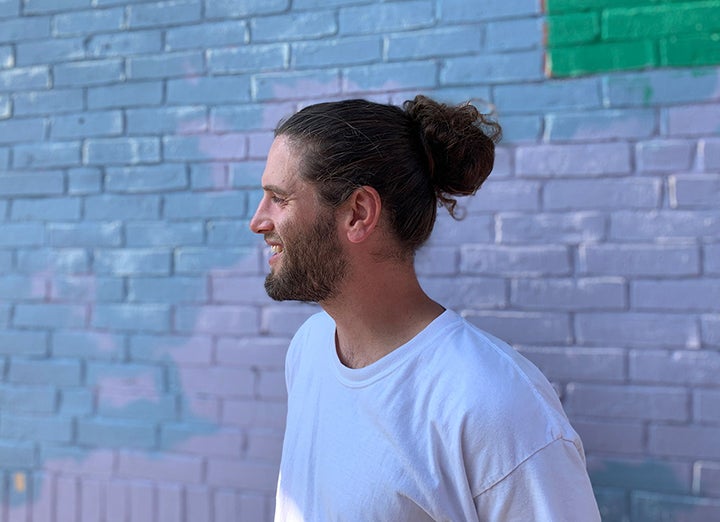Social work isn’t what you might think, and the students pursuing social work degrees through Boise State’s School of Social Work are as different as their passions and goals for their lives and futures. That’s a very good thing – the challenges they face in their internships, graduate assistantships and coursework show just how needed their perspectives and skills are.
Here’s a sneak peek at the “social workers” of the future (spoiler alert: The term hardly captures the range of what they’re interested in – and what they might accomplish.)
Zack Wincklhofer
First-year master’s student

Zach Wincklhofer had never been to Idaho before he started the social work program. Based on the positive experience of a friend, he moved from Maine to Boise.
And master’s-level work, he knew, was going to be a stretch – which was one of the reasons he chose to try, supported by Associate Professor Jill Chonody, who built a relationship with him before he moved across the country.
“She kind of comforted me in the fact that I didn’t have great grades during my undergraduate studies, and that they look at other things,” Wincklhofer said. “I applied to prove to myself that I had it in me.”
Wincklhofer studied visual and digital arts and creative writing at Champlain College in Burlington, Vt., graduating with his bachelor’s degree in 2015. Creativity and the arts, likely to play a role in his future, have been a significant part of his past, to such a degree that he’s not sure the undergraduate experience was particularly necessary. But his minor in psychology was a jumping-off point.
What followed was a succession of jobs, often with young people.
“They’re so refreshing. Adults can be so jaded,” he observes.
He began building a career in education, working with a special education program at a high school and learning about autism, trauma and other mental health-related issues. He saw how pieces of his life and his personality, combined, were helpful to others.
“It was eye-opening to me,” he recalls. “I felt valued for being me, and what I brought to the table was inherently helpful.”
He has thrown himself into the program and the Idaho life, playing tennis and soccer, skateboarding – and sounding both pleased and surprised that academics are going as well as they are after a checkered school past. He credits supportive faculty members and the welcoming environment among classmates for the experience, and notes that the first-year emphasis on the history of social work, where the field has been and where it is headed, has been interesting.
“I’m definitely enjoying my studies,” he said. “It’s been really solid so far, in terms of getting a variety of course material.
“It’s going really well, I think. Certain weeks are better than others, but all in all, it’s going pretty well.”
Early on, Wincklhofer met with Ray Mullenax, the school’s director of field education, regarding a suitable internship. The two came up with an assignment that has combined Wincklhofer’s arts and art therapy experience and interest and the practical focus of the placements. He is now interning at the Boise Hive, a small nonprofit recording studio that has a suicide prevention component; musicians can rent studio and recording space and there is a counseling room.
The experience has helped him to imagine a career that blends his background in education and mental health.
“It is a really, really multifaceted field, and it’s nice to know, with the different facets to social work, that there are many potential career paths,” Wincklhofer said. “That’s been very helpful to me, that I’m learning a myriad of skills and subject matter. The idea of being multifaceted is really appealing to me.”
He is thinking about becoming a school social worker; long term, he may have his own counseling practice. He might weave in art therapy. He continues to find working with children and the young invigorating.
“I like the idea of working with young people, and if they’re having troubles, I like the idea of being of assistance while they still have so much life to live.”
Connections with professors who “treat you like colleagues” and who have been generous with their time and a small cohort of students who share a similar view of the world but are very distinct personalities has convinced him that the program is a meaningful way forward.
“It kind of gives me something to look forward to,” he said. “I just see a bright future, in terms of the value of a social work degree.
“It’s nice to know I am pursuing a career that has the inherent purpose to help others. It gives me a bit of, like, literal purpose on Earth.
“Helping people is a great reason to be here.”